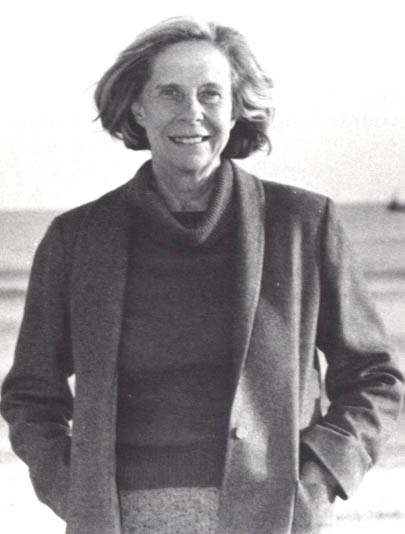

© Charles E. Manley
BARBARA GUEST
The typewriter, usually a little mist-bound, always the keys with their slow response, webbed in the Hampton damp. A variation on the city typewriter, it carries echoes of winter days in a still, snow-bound room, or of a summer fog settled on the keyboard overnight. The typewriter of the Hamptons, dwelling as it does by the sea, is never in a brisk condition, quick to the pulse; its life has not been nurtured near a rapid city sidewalk, but under the shadow of trees and low clouds.
Recalling my years in the Hamptons I remember lines of poetry and prose that were conceived on Lanes: Halsey, Toylsome, Meeting House, and now Pleasant. They each evoke an image that met me from the summer fields or sea, an ear of corn, sunflowers, snow, or summer haze turning into the abrupt clarity of September when, as I noted, “shadows are longer.”
When I was writing the biography of the poet, H.D., I spent several years in a cottage in Southampton whose address was Meeting House Lane. During that period I was involved in a correspondence with persons peripheral and necessary to my biography, but whom I did not know and who lived mostly in Europe. I have never received such prompt return to my questioning letters as I did at that time. I became convinced, in particular as the British mail collected in my mailbox, that it was the address that fascinated and coerced my correspondents. The name of my street evoked those early settlers gathered in a small frame dwelling, colonists who had rebelled from the mother country, England, did it not? Meeting House Lane as such was an exotic address, with its overtone of purism. Correspondence is much slower to come to my numerical city address and I believe I detect a disinterestedness in my replies.
I know that in some mysterious natural way I must write differently here. For instance, absorption with weather lends its passage to my mood as does the controlling light. Sometimes I believe my poetry is untameable, conspiring with nature and its sovereignty. My work is tracked by country ghosts whose narrowed eyes are shielded by cover of shrub and seasonal ground. I observe with humility the great nearby sea, or its marginal inlets, that hold my life in their span. I am, I notice, in thrall, controlled.